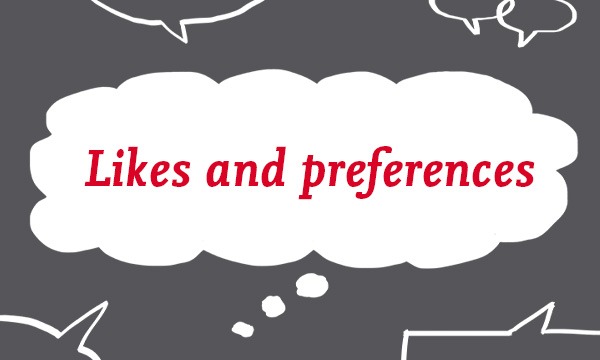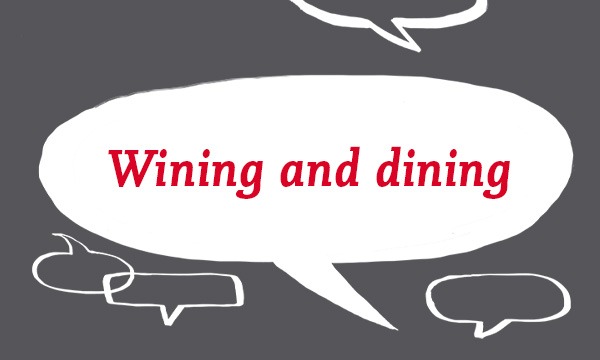One of the most challenging parts of learning a foreign language is getting to grips with all the different verb tenses. Verb tenses explain when events happen, whether in the past, present or future. In this short article we will explain and provide some examples of the most common tenses you’ll come across.
The present tense
The present tense is used to talk about what is true at the moment, what happens regularly and what is happening now, for example, ‘I’m a student’; ‘She works as a consultant’; ‘I’m studying German’.
There is more than one way to express the present tense in English. For example, you can either say ‘I give’, ‘I am giving’ or occasionally ‘I do give’. In German, you use the same form ich gebe for all these.
In English you can also use the present tense to talk about something that is going to happen in the near future. You can do the same in German.
Morgen spiele ich Tennis. [I’m going to play tennis tomorrow.]
Wir nehmen den Zug um zehn Uhr. [We’re getting the 10 o’clock train.]
The future tense
The future tense is used to talk about something that will happen or will be true. There are several ways to express the future tense in English: you can use the future tense (‘I’ll ask him on Tuesday’), the present tense (‘I’m not working tomorrow’), or ‘going to’ followed by an infinitive (‘She’s going to study in Switzerland for a year’). In German you can also use the future tense (if you want to emphasize the future, express doubt or suppose something about the future) or the present tense. You cannot use the verb gehen (to go) followed by an infinitive.
Das werde ich erst nächstes Jahr machen können [I won’t be able to do that until.next year.]
Ich nehme den letzten Zug [I’m taking the last train.]
Das wirst du bereuen [You’re going to regret that.]
The imperfect tense
The imperfect tense is one of the tenses used to talk about the past, especially in descriptions, and to say what used to happen, for example ‘I used to work in Manchester’; ‘It was sunny yesterday’.
Ich war ganz traurig, als sie wegging. [I was very sad when she left.]
Es gab ein großes Problem mit Drogen. [There was a big problem with drugs.]
Samstags spielte ich Tennis. [I used to play tennis on Saturdays.]
The perfect tense
The perfect tense is made up of two parts: the present tense of haben or sein, and the German past participle (like ‘given’, ‘finished’ and ‘done’ in English). Most verbs form the perfect tense with haben. There are two main groups of verbs which form their perfect tense with sein instead of haben: two verbs which mean ‘to happen’ (geschehen and passieren) and a group of verbs that are mainly used to talk about movement or a change of some kind, including:
gehen [to go]
kommen [to come]
ankommen [to arrive]
abfahren [to leave]
aussteigen [to get off]
einsteigen [to get on]
sterben [to die]
sein [to be]
werden [to become]
bleiben [to remain]
begegnen [to meet]
gelingen [to succeed]
aufstehen [to get up]
fallen [to fall]
Gestern bin ich ins Kino gegangen. [I went to the cinema yesterday.]
Sie ist ganz früh abgefahren. [She left really early.]
The imperative
The imperative is a form of the verb used when giving orders and instructions, for example, ‘Be quiet!’, ‘Shut the door!’, ‘Don’t go!’
In German, there are several forms of the imperative that are used to give instructions or orders to someone. These correspond to du, ihr and Sie. For the du form most verbs simply use the verb stem (an –e can be added to help pronunciation). The ihr form adds a –t to the stem and the Sie form adds –en.
Hol(e)! [Fetch!]
Holt! [Fetch!]
Holen Sie! [Fetch!]
The subjunctive
The subjunctive is a verb form that is used in certain circumstances to express some sort of feeling, or to show there is doubt about whether something will happen or something is true. It is used much more frequently in German than in English, for example in indirect speech.
Direct Speech
Sie sagte: „Er kennt deine Schwester.“ [She said, “He knows your sister.”]
Indirect Speech
Sie sagte, er kenne meine Schwester. [She said he knew my sister.]
The conditional
The conditional is a verb form used to talk about things that would happen or that would be true under certain conditions, for instance, ‘I would help you if I could’. It is also used to say what you would like or need, for example, ‘Could you give me the bill?’. The conditional tense in German is made up of two parts: the würde form – the imperfect subjunctive of the verb werden (to become) – and the infinitive of the main verb, which normally goes at the end of the sentence.
Was würden Sie an meiner Stelle tun? [What would you do in my position?]
Das würde ich nie von dir verlangen. [I would never ask that of you.]
So hopefully you’ll now feel much more confident in how and when to use the correct tense. More information can be found in the German Grammar section of this website.




collins_dictionary_official
The home of living language. #wotd #wordlovers #collinsdictionary
Read our word of the week definitions and blog posts: